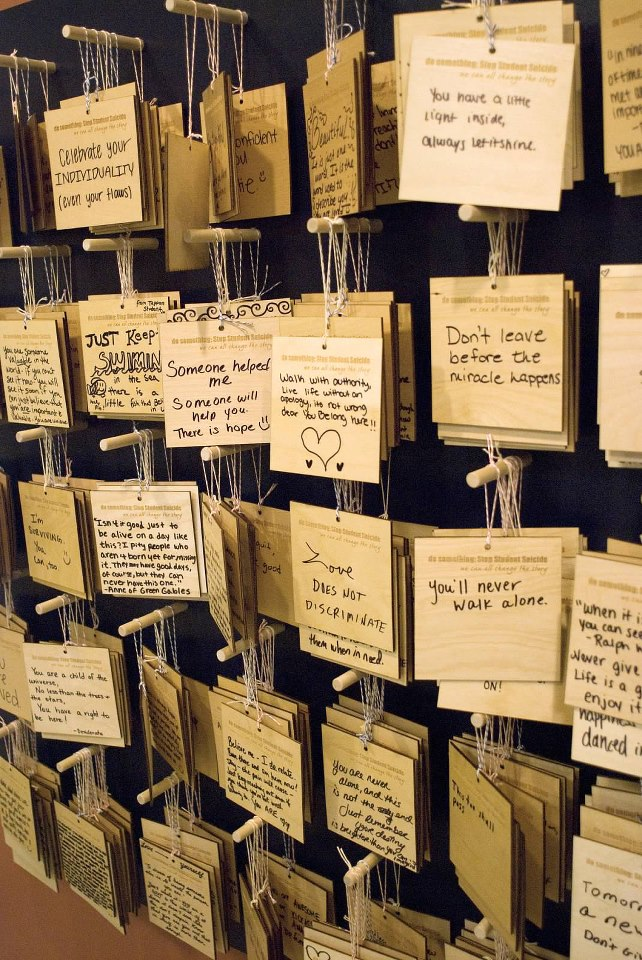Started in 2012, University of Michigan CAPS initiated the "Messages of Hope" project to invite our whole campus community to:
- identify day to day messages of hope that help us when students are in a crisis
- reflect back those messages – to each other and make them available to us
- show how to use these messages of hope to become roads of resiliency
This effort is in the larger ongoing do something campaign, started in 2007, in which CAPS encourages the whole campus community to engage in student mental heatlh support – whether it’s helping a student in a faculty/staff role, helping yourself as a student, or helping a friend, roommate, classmate. Even if you don’t know exactly what to do – do something. And, ‘do’ – it’s great to have awareness and knowledge and a value of helping and the desire to help but it’s not enough – we HAVE TO ACT. In effect, we are strengthening our “community of caring” that includes CAPS and other mental health professional agencies and people who are not mental health professionals – in short, ALL OF US.
The Surgeon General's report a few years ago indicates strong support for suicide prevention on a national level. This is a part of the story; but we need to translate all this in to a U of M culture that is 100% supportive and gives 100% clarity of what to do when a student needs help with a mental health crisis.
Why Do This?
The data:
- General student body: ~26% of students have some degree of suicidal ideation
- CAPS Clients: ~38% of clients coming to CAPS have some degree of suicidal ideation
- 25% of students know someone who has died by suicide
- 40% of students know someone who has attempted suicide
- These figures indicate that the amount of distress, the amount of suicidal ideation, the amount of struggling, is high.
- A common finding in suicide prevention is that lack of social support — described as feeling unappreciated, unloved and uninvolved with family and friends — emerges as one of the most powerful predictors of persistent suicidal thoughts, even in the absence of other risk factors. 67% of our students feel “isolated and lonely” at times – even in the midst of many people and communities and resources and people who want to help every day.
- At the end of the day, the scientific study of risk and protective factors is important; the clinical knowledge and service delivery of how to work with suicidal ideation is important; but it’s not enough. We all need to do something more.
What stands out among all the science and clinical care findings are 2 central themes of “hope” and “resiliency”. THAT is what gets us through the tough times, including a suicidal crisis.
Messages of Hope Boards:
March 28th 2018: CAPS, in collaboration with the Pierpont Commons Board of Representatives and the Stamps School of Art and Design, unveiled its third installation located on North Campus. The unique design of this board highlights the diverse voices of our four North Campus schools/colleges.
September 15th 2017: CAPS and the Athletic Department unveiled a Messages of Hope Board in the Ross Academic Center for student athletes. Around 100 people attended, including Cathy Radovich, mother of Garrick Roemer, who died by suicide a few years earlier.
March 2013: CAPS unveiled the first Messages of Hope Board.

